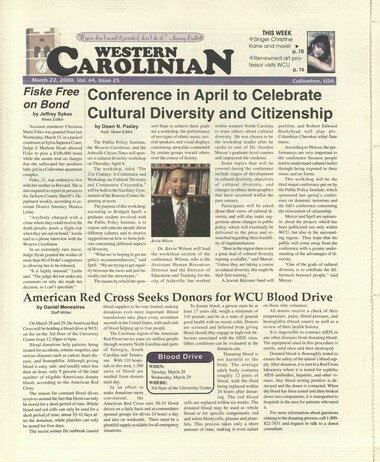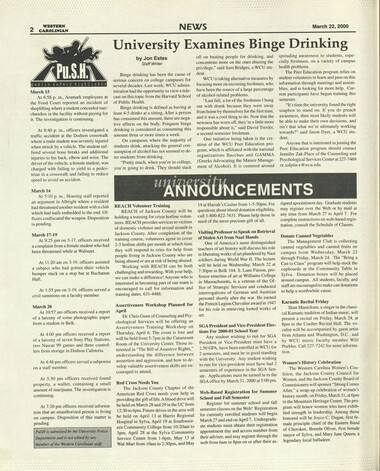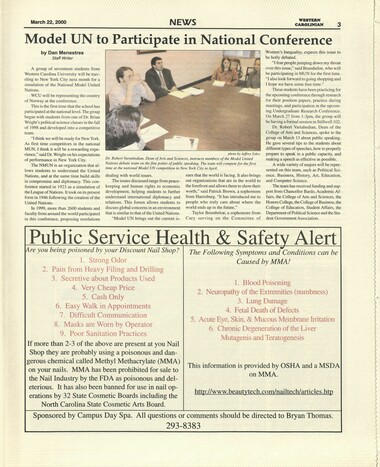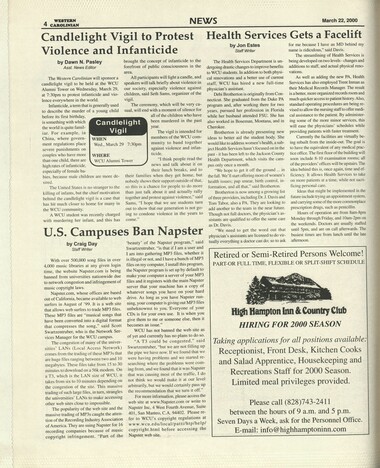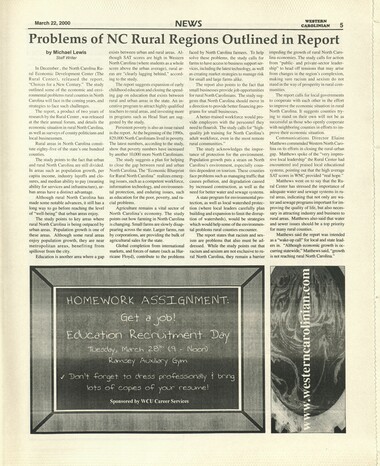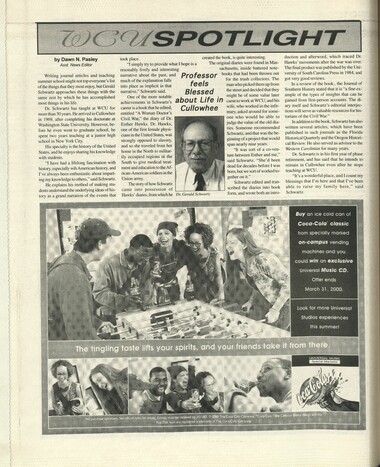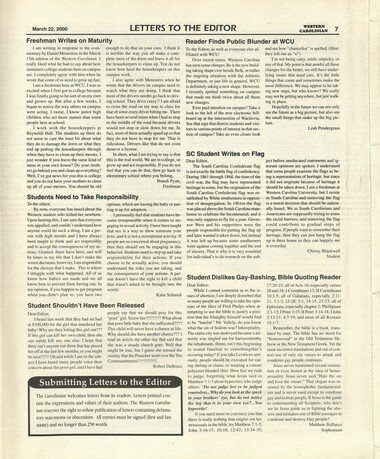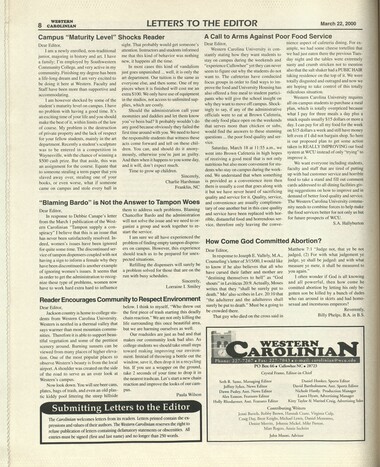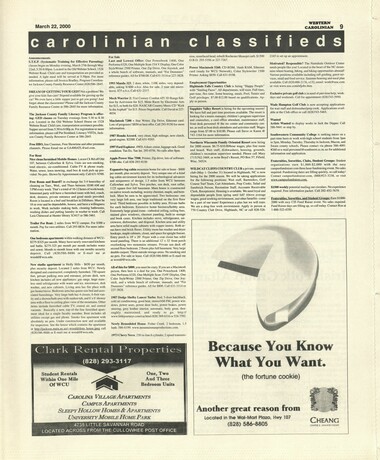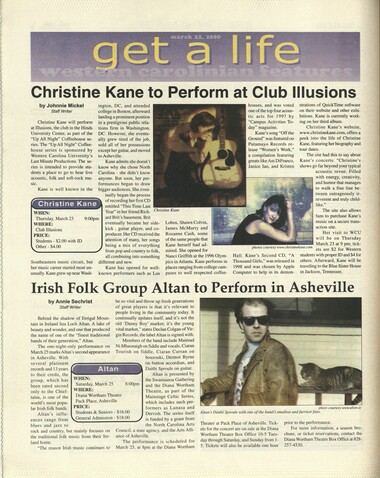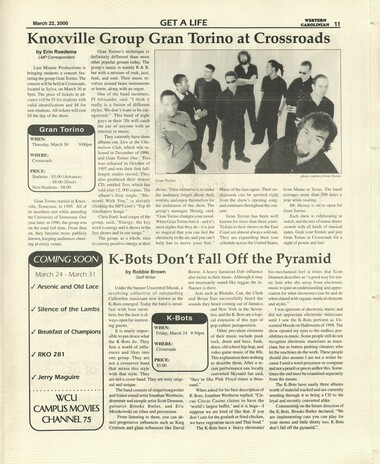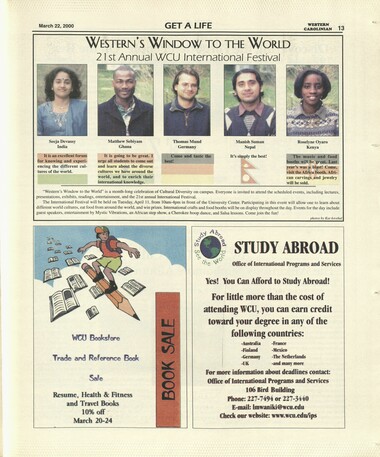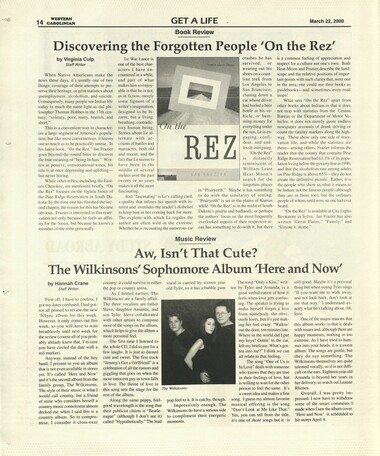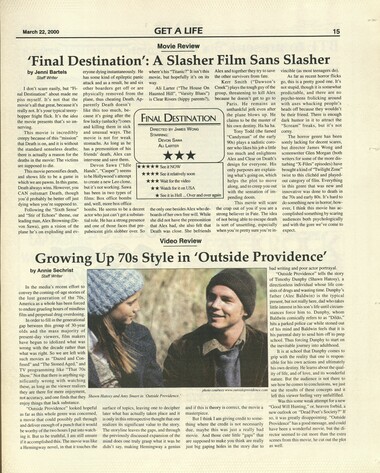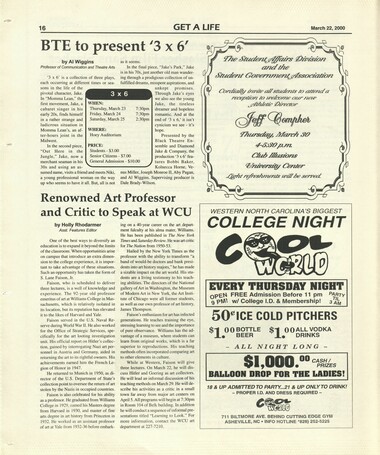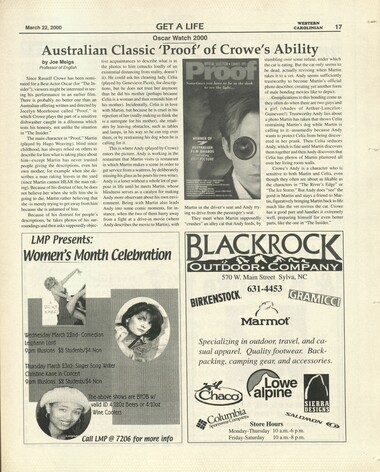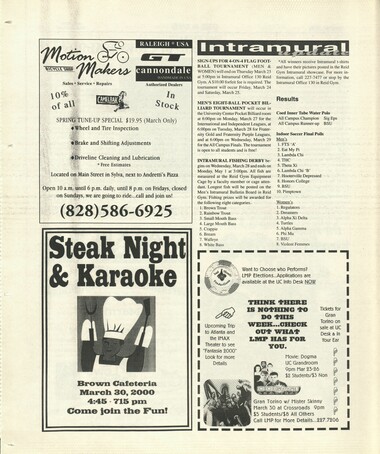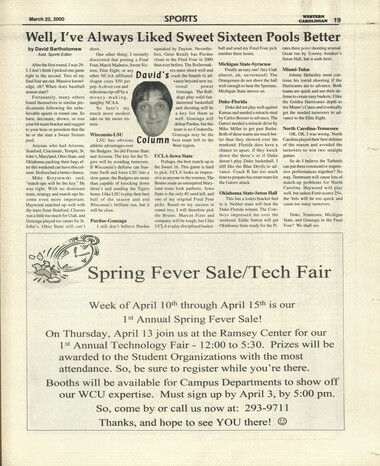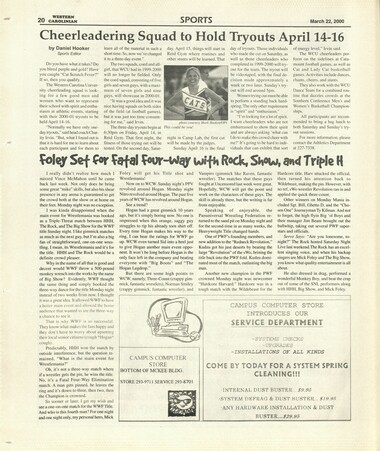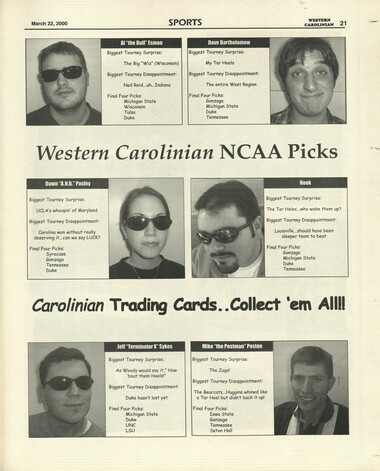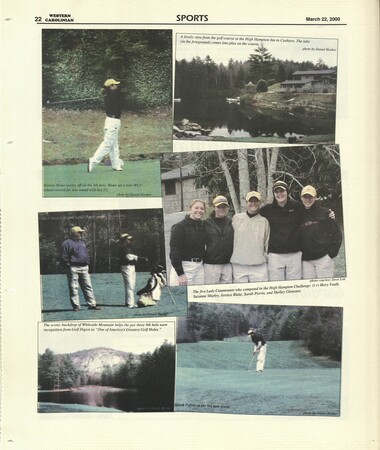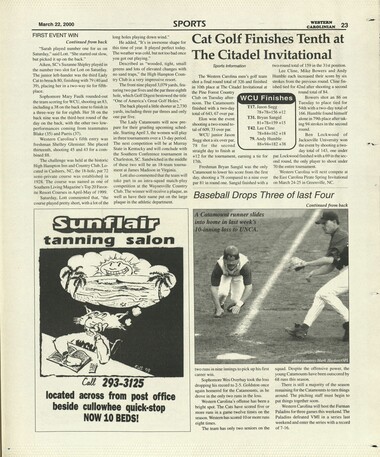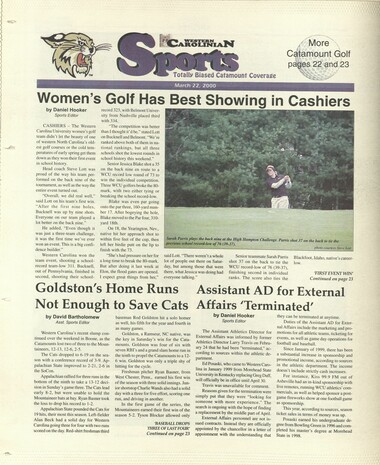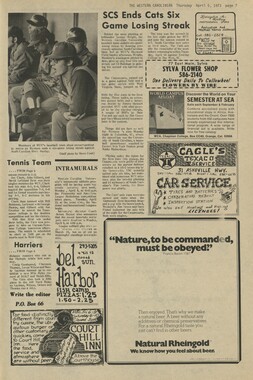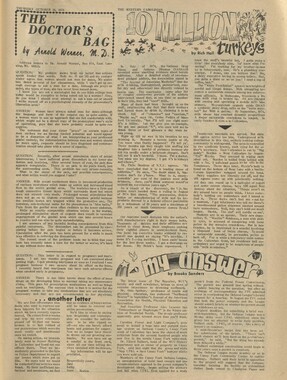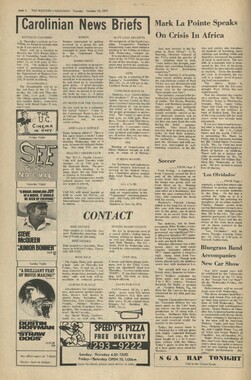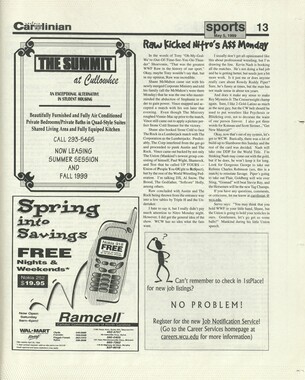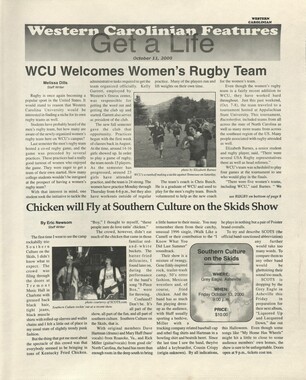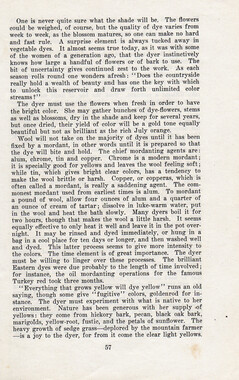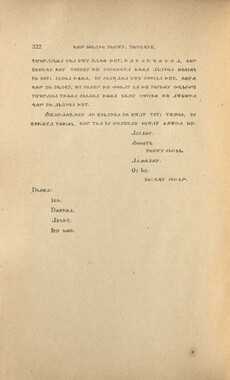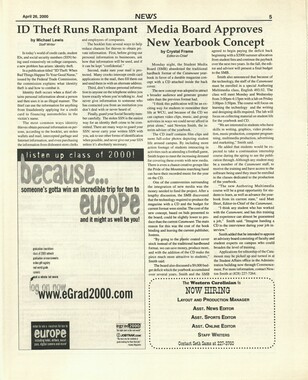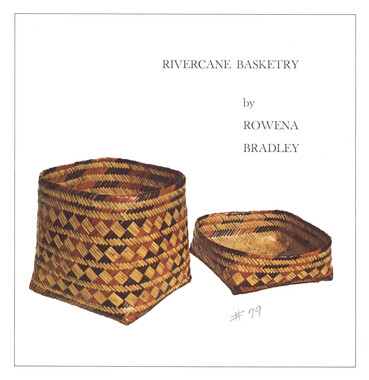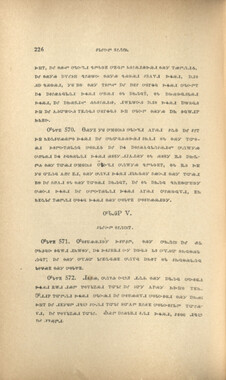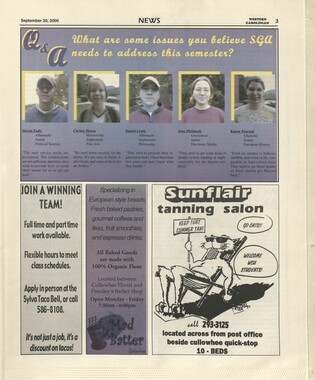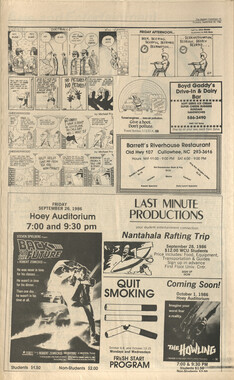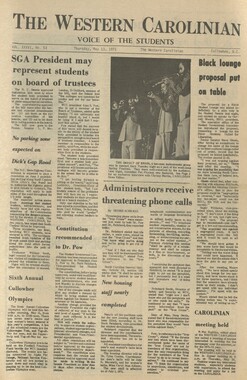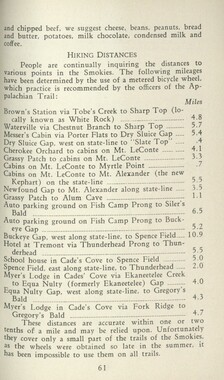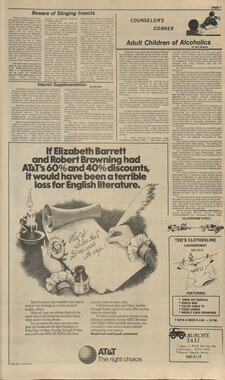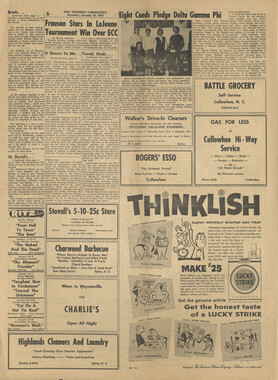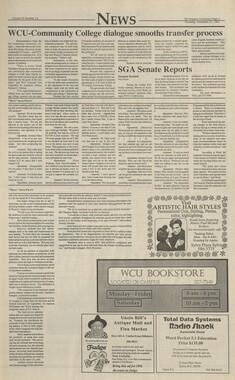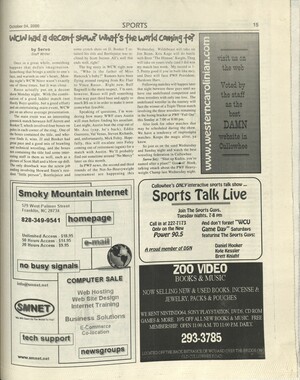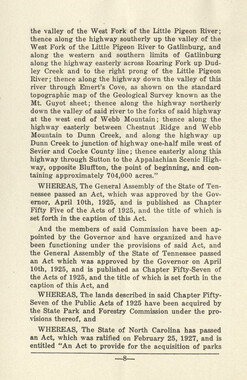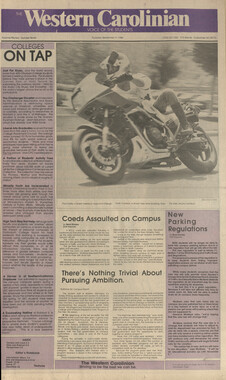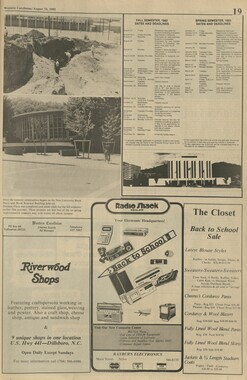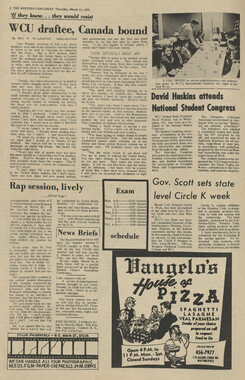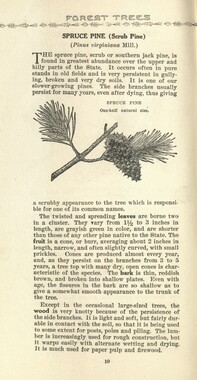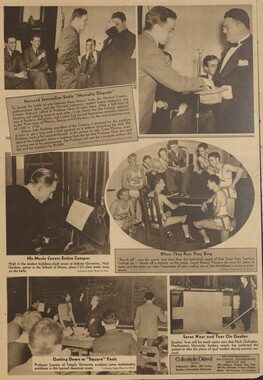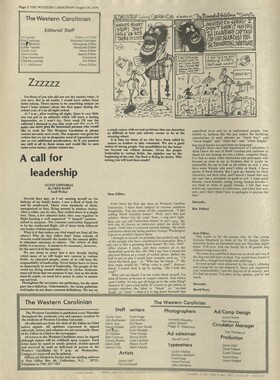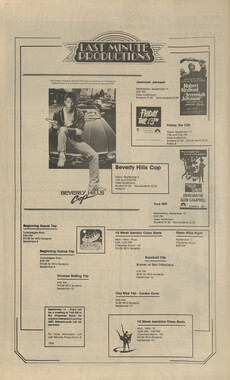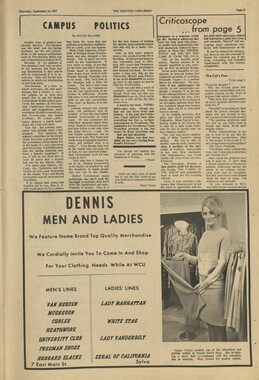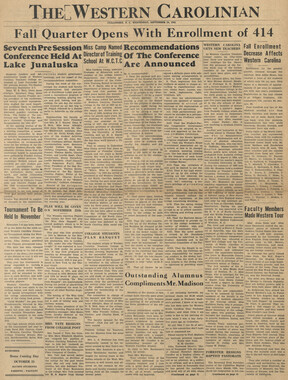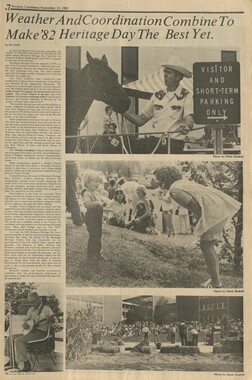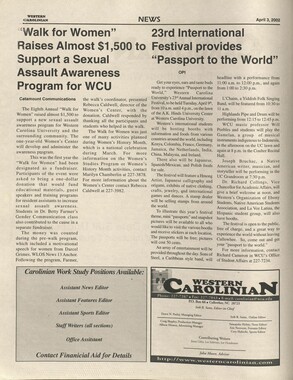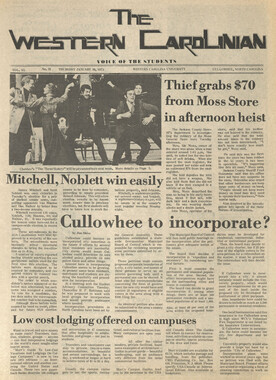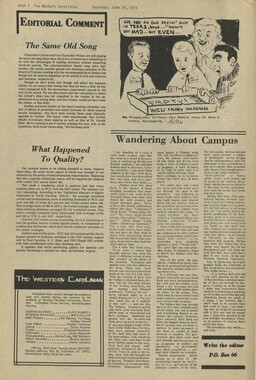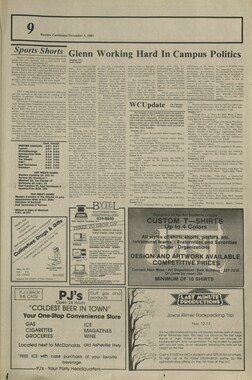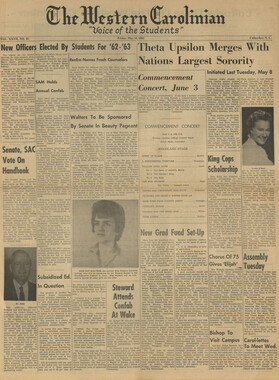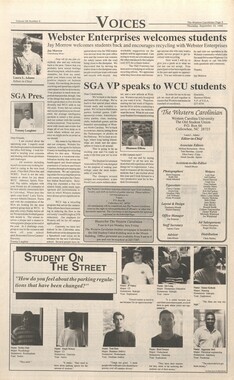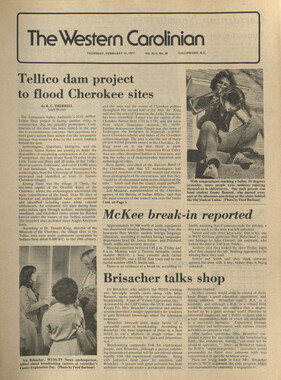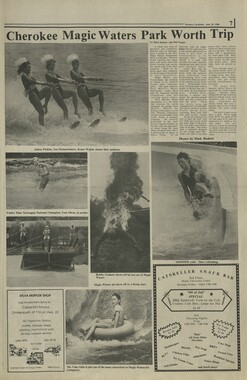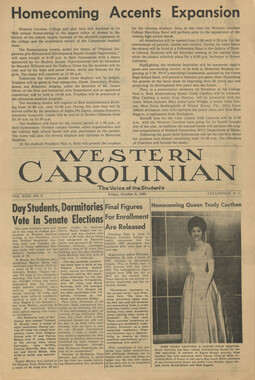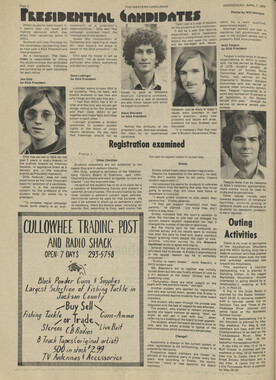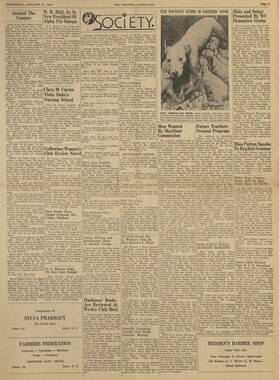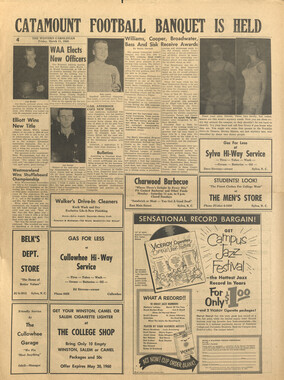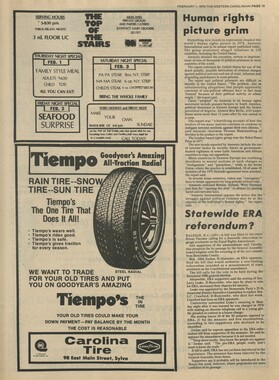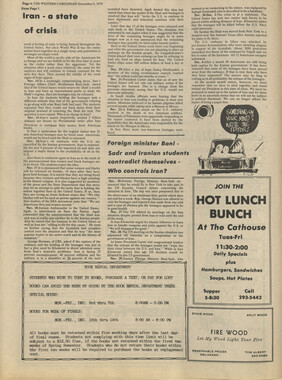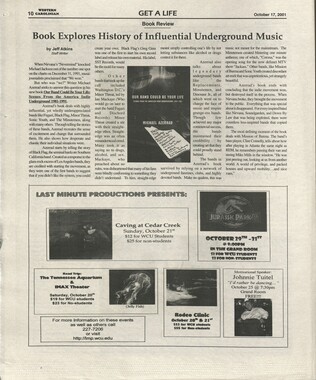Western Carolina University (20)
View all
- Canton Champion Fibre Company (2308)
- Cherokee Traditions (293)
- Civil War in Southern Appalachia (165)
- Craft Revival (1942)
- Great Smoky Mountains - A Park for America (2767)
- Highlights from Western Carolina University (430)
- Horace Kephart (941)
- Journeys Through Jackson (154)
- LGBTQIA+ Archive of Jackson County (26)
- Oral Histories of Western North Carolina (314)
- Picturing Appalachia (6772)
- Stories of Mountain Folk (413)
- Travel Western North Carolina (160)
- Western Carolina University Fine Art Museum Vitreograph Collection (129)
- Western Carolina University Herbarium (92)
- Western Carolina University: Making Memories (708)
- Western Carolina University Publications (2283)
- Western Carolina University Restricted Electronic Theses and Dissertations (146)
- Western North Carolina Regional Maps (71)
- World War II in Southern Appalachia (131)
University of North Carolina Asheville (6)
View all
- Allanstand Cottage Industries (62)
- Appalachian National Park Association (53)
- Bennett, Kelly, 1890-1974 (1388)
- Berry, Walter (76)
- Brasstown Carvers (40)
- Carver, George Washington, 1864?-1943 (26)
- Cathey, Joseph, 1803-1874 (1)
- Champion Fibre Company (233)
- Champion Paper and Fibre Company (297)
- Cherokee Indian Fair Association (16)
- Cherokee Language Program (22)
- Crowe, Amanda (40)
- Edmonston, Thomas Benton, 1842-1907 (7)
- Ensley, A. L. (Abraham Lincoln), 1865-1948 (275)
- Fromer, Irving Rhodes, 1913-1994 (70)
- George Butz (BFS 1907) (46)
- Goodrich, Frances Louisa (120)
- Grant, George Alexander, 1891-1964 (96)
- Heard, Marian Gladys (60)
- Kephart, Calvin, 1883-1969 (15)
- Kephart, Horace, 1862-1931 (313)
- Kephart, Laura, 1862-1954 (39)
- Laney, Gideon Thomas, 1889-1976 (439)
- Masa, George, 1881-1933 (61)
- McElhinney, William Julian, 1896-1953 (44)
- Niggli, Josephina, 1910-1983 (10)
- North Carolina Park Commission (105)
- Osborne, Kezia Stradley (9)
- Owens, Samuel Robert, 1918-1995 (11)
- Penland Weavers and Potters (36)
- Roberts, Vivienne (15)
- Roth, Albert, 1890-1974 (142)
- Schenck, Carl Alwin, 1868-1955 (1)
- Sherrill's Photography Studio (2565)
- Southern Highland Handicraft Guild (127)
- Southern Highlanders, Inc. (71)
- Stalcup, Jesse Bryson (46)
- Stearns, I. K. (213)
- Thompson, James Edward, 1880-1976 (226)
- United States. Indian Arts and Crafts Board (130)
- USFS (683)
- Vance, Zebulon Baird, 1830-1894 (1)
- Weaver, Zebulon, 1872-1948 (58)
- Western Carolina College (230)
- Western Carolina Teachers College (282)
- Western Carolina University (1794)
- Western Carolina University. Mountain Heritage Center (18)
- Whitman, Walt, 1819-1892 (10)
- Wilburn, Hiram Coleman, 1880-1967 (73)
- Williams, Isadora (3)
- Cain, Doreyl Ammons (0)
- Crittenden, Lorraine (0)
- Rhodes, Judy (0)
- Smith, Edward Clark (0)
- Appalachian Region, Southern (2399)
- Asheville (N.C.) (1917)
- Avery County (N.C.) (26)
- Blount County (Tenn.) (161)
- Buncombe County (N.C.) (1671)
- Cherokee County (N.C.) (283)
- Clay County (N.C.) (555)
- Graham County (N.C.) (233)
- Great Smoky Mountains National Park (N.C. and Tenn.) (510)
- Haywood County (N.C.) (3522)
- Henderson County (N.C.) (70)
- Jackson County (N.C.) (4692)
- Knox County (Tenn.) (25)
- Knoxville (Tenn.) (12)
- Lake Santeetlah (N.C.) (10)
- Macon County (N.C.) (420)
- Madison County (N.C.) (211)
- McDowell County (N.C.) (39)
- Mitchell County (N.C.) (132)
- Polk County (N.C.) (35)
- Qualla Boundary (981)
- Rutherford County (N.C.) (76)
- Swain County (N.C.) (2113)
- Transylvania County (N.C.) (247)
- Watauga County (N.C.) (12)
- Waynesville (N.C.) (73)
- Yancey County (N.C.) (72)
- Aerial Photographs (3)
- Aerial Views (60)
- Albums (books) (4)
- Articles (1)
- Artifacts (object Genre) (228)
- Bibliographies (1)
- Biography (general Genre) (2)
- Cards (information Artifacts) (38)
- Clippings (information Artifacts) (191)
- Crafts (art Genres) (622)
- Depictions (visual Works) (21)
- Design Drawings (1)
- Drawings (visual Works) (184)
- Envelopes (73)
- Facsimiles (reproductions) (1)
- Fiction (general Genre) (4)
- Financial Records (12)
- Fliers (printed Matter) (67)
- Glass Plate Negatives (381)
- Guidebooks (2)
- Internegatives (10)
- Interviews (812)
- Land Surveys (102)
- Letters (correspondence) (1013)
- Manuscripts (documents) (619)
- Maps (documents) (177)
- Memorandums (25)
- Minutes (administrative Records) (59)
- Negatives (photographs) (5835)
- Newsletters (1285)
- Newspapers (2)
- Occupation Currency (1)
- Paintings (visual Works) (1)
- Pen And Ink Drawings (1)
- Periodicals (193)
- Personal Narratives (10)
- Photographs (12976)
- Plans (maps) (1)
- Poetry (7)
- Portraits (1960)
- Postcards (329)
- Programs (documents) (151)
- Publications (documents) (2237)
- Questionnaires (65)
- Scrapbooks (282)
- Sheet Music (2)
- Slides (photographs) (402)
- Songs (musical Compositions) (2)
- Sound Recordings (796)
- Specimens (92)
- Speeches (documents) (15)
- Tintypes (photographs) (8)
- Transcripts (322)
- Video Recordings (physical Artifacts) (23)
- Vitreographs (129)
- Text Messages (0)
- A.L. Ensley Collection (275)
- Appalachian Industrial School Records (7)
- Appalachian National Park Association Records (336)
- Axley-Meroney Collection (2)
- Bayard Wootten Photograph Collection (20)
- Bethel Rural Community Organization Collection (7)
- Blumer Collection (5)
- C.W. Slagle Collection (20)
- Canton Area Historical Museum (2110)
- Carlos C. Campbell Collection (282)
- Cataloochee History Project (65)
- Cherokee Studies Collection (4)
- Daisy Dame Photograph Album (5)
- Daniel Boone VI Collection (1)
- Doris Ulmann Photograph Collection (112)
- Elizabeth H. Lasley Collection (1)
- Elizabeth Woolworth Szold Fleharty Collection (4)
- Frank Fry Collection (95)
- George Masa Collection (173)
- Gideon Laney Collection (452)
- Hazel Scarborough Collection (2)
- Hiram C. Wilburn Papers (28)
- Historic Photographs Collection (236)
- Horace Kephart Collection (861)
- Humbard Collection (33)
- Hunter and Weaver Families Collection (1)
- I. D. Blumenthal Collection (4)
- Isadora Williams Collection (4)
- Jesse Bryson Stalcup Collection (47)
- Jim Thompson Collection (224)
- John B. Battle Collection (7)
- John C. Campbell Folk School Records (80)
- John Parris Collection (6)
- Judaculla Rock project (2)
- Kelly Bennett Collection (1407)
- Love Family Papers (11)
- Major Wiley Parris Civil War Letters (3)
- Map Collection (12)
- McFee-Misemer Civil War Letters (34)
- Mountain Heritage Center Collection (4)
- Norburn - Robertson - Thomson Families Collection (44)
- Pauline Hood Collection (7)
- Pre-Guild Collection (2)
- Qualla Arts and Crafts Mutual Collection (12)
- R.A. Romanes Collection (681)
- Rosser H. Taylor Collection (1)
- Samuel Robert Owens Collection (94)
- Sara Madison Collection (144)
- Sherrill Studio Photo Collection (2558)
- Smoky Mountains Hiking Club Collection (616)
- Stories of Mountain Folk - Radio Programs (374)
- The Reporter, Western Carolina University (510)
- Venoy and Elizabeth Reed Collection (16)
- WCU Gender and Sexuality Oral History Project (32)
- WCU Mountain Heritage Center Oral Histories (25)
- WCU Oral History Collection - Mountain People, Mountain Lives (71)
- WCU Students Newspapers Collection (1744)
- Western North Carolina Tomorrow Black Oral History Project (69)
- William Williams Stringfield Collection (2)
- Zebulon Weaver Collection (109)
- African Americans (390)
- Appalachian Trail (35)
- Artisans (521)
- Cherokee art (84)
- Cherokee artists -- North Carolina (10)
- Cherokee language (21)
- Cherokee pottery (101)
- Cherokee women (208)
- Church buildings (167)
- Civilian Conservation Corps (U.S.) (110)
- College student newspapers and periodicals (1830)
- Dams (103)
- Dance (1023)
- Education (222)
- Floods (61)
- Folk music (1015)
- Forced removal, 1813-1903 (2)
- Forest conservation (220)
- Forests and forestry (1058)
- Gender nonconformity (4)
- Great Smoky Mountains National Park (N.C. and Tenn.) (181)
- Hunting (38)
- Landscape photography (10)
- Logging (103)
- Maps (84)
- Mines and mineral resources (8)
- North Carolina -- Maps (18)
- Paper industry (38)
- Postcards (255)
- Pottery (135)
- Railroad trains (71)
- Rural electrification -- North Carolina, Western (3)
- School integration -- Southern States (2)
- Segregation -- North Carolina, Western (5)
- Slavery (5)
- Sports (452)
- Storytelling (245)
- Waterfalls -- Great Smoky Mountains (N.C. and Tenn.) (66)
- Weaving -- Appalachian Region, Southern (280)
- Wood-carving -- Appalachian Region, Southern (328)
- World War, 1939-1945 (173)
Western Carolinian Volume 64 (65) Number 25
Item
Item’s are ‘child’ level descriptions to ‘parent’ objects, (e.g. one page of a whole book).
-
-
Jj ijcu don t want it printed, don / go it. -Jimmy Buffety I WESTERN ^Y aroliniaN THIS WEEK ^Singer Christine Kane and more! ► p. 10 ^Renowned art professor visits WCU p. 16 March 22, 2000, Vol. 64, Issue 25 Cullowhee, USA Fiske Free on Bond by Jeffrey Sykes News Editor Accused murderer Christina Marie Fiske was granted bond last Wednesday, March 15, in a packed courtroom in Sylva Superior Court, Judge J. Marlene Hyatt allowed Fiske to post a $100,000 bond while she awaits trial on charges that she suffocated her newborn baby girl in a Cullowhee apartment complex. Fiske, 21, was ordered to live with her mother in Brevard. She is also required to report in person to the Jackson County Sheriff's Department weekly, according to assistant District Attorney Monica Leslie. "Anybody charged with a crime where they could receive the death penalty poses a flight risk when they are out on bond," Leslie said in a phone interview with the Western Carolinian. In an extremely rare move, Judge Hyatt granted the wishes of more than 80 of Fiske's supporters in allowing her to be released. "It is highly unusual," Leslie said. "The judge did not make any comments on why she made her decision, so I can't speculate." Conference in April to Celebrate Cultural Diversity and Citizenship by Dawn N. Pasley Asst. News Editor The Public Policy Institute, the Western Carolinian, and the Asheville Citizen-Times will sponsor a cultural diversity workshop on Thursday, April 6. The workshop, titled "The 21st Century: A Conference and Workshop on Cultural Diversity and Community Citizenship," will be held in the Auxiliary Gymnasium of the Ramsey Center, beginning at noon. The purpose of this workshop, according to Bridgett Spell, a graduate student involved with the Public Policy Institute, is to expose and educate people about different cultures and to receive suggestions on how to form policies concerning different aspects of diversity. "What we're hoping to get are policy recommendations," said Spell. "We are trying to get equality between the races and just basically end the stereotypes." The means by which the spon sors hope to achieve these goals are a workshop, the performance of two types of ethnic music, several speakers, and visual displays concerning atrocities committed by certain groups toward others over the course of history. Kevin Wilson Dr. Kevin Wilson will lead the workshop section of the conference. Wilson, who is the Assistant Human Resources Director and the Director of Education and Training for the city of Asheville, has worked within western North Carolina to train others about cultural diversity. He was chosen to be the workshop leader after he spoke to one of Dr. Gordon Mercer's graduate-level courses and impressed the students. Some topics that will be covered during the conference include stages of development in cultural diversity, objectives of cultural diversity, and changes in ethnic demographics that have occurred within the past century. Participants will be asked about their views of cultural diversity and will also make suggestions about changes in public policy, which will eventually be delivered to the press and researched regarding their feasibility of implementation. "Here in the region there is not a great deal of cultural diversity training available," said Mercer. "Unless they are taking a course in cultural diversity, this might be their first training." A Jewish Klezmer band will perform, and Robert Edward Bushyhead will play pre- Columbian Cherokee tribal flute music. According to Mercer, the performances are very important to the conference because people tend to understand cultures better through being exposed to their music and art forms. This workshop will be the third major conference put on by the Public Policy Institute, which sponsored last spring's conference on domestic terrorism and the fall's conference concerning the reinvention of citizenship. Mercer and Spell are optimistic about the project, which has been publicized not only within WCU, but also in the surrounding region. They hope that the public will come away from the conference with a greater understanding of the advantages of diversity. "One of the goals of cultural diversity is to celebrate the differences between people," said Mercer. American Red Cross Seeks Donors for WCU Blood Drive by Daniel Menestres Staff Writer On March 28 and 29, the American Red Cross will be holding a blood drive at WCU on the on the 3rd floor of the University Center from 12:30pm to 6pm. Blood donations help patients being treated for accidents, routine surgeries, and serious diseases such as cancer, heart disease, and hemophilia. Although giving blood is easy, safe, and usually takes less than an hour, only 5 percent of the total number of eligible Americans donate blood, according to the American Red Cross. The reason for constant blood drives revolves around the fact that blood can only be stored for a short period of time. Whole blood and red cells can only be used for a short period of time, about 35-42 days after the donation, while platelets can only be stored for five days. The recent winter flu outbreak caused blood supplies to be very limited, making donations even more important. Blood transfusions take place every seventeen seconds in the United States, with each unit of blood helping up to four people. The Carolinas region of the American Red Cross serves some six million people through western North Carolina and parts of Georgia, South Carolina and Tennessee. With 110 hospitals in this area, 1,500 units of blood are needed from donors each day. In an effort to make donations more ^ convenient, the American Red Cross runs 30-35 blood drives on a daily basis and accommodates sponsor groups for drives 24 hours a day and also on weekends. There must be a plentiful supply available for all emergency situations. Blood Drive WHEN: Tuesday, March 28 Wednesday, March 29 WHERE: 3rd floor of the University Center To donate blood, a person must be at least 17 years old, weigh a minimum of 110 pounds, and be in a state of general good health with no recent colds. Donors are screened and deferred from giving blood should they engage in high-risk behaviors associated with the AIDS virus. Other conditions can be evaluated at the donation site. Donating blood is not harmful to the body. The average adult body contains roughly 12 pints of blood, with the fluid being replaced within 24 hours after donating. The red blood cells are replaced within six weeks. The donated blood may be used as whole blood or for specific components: red and white blood cells, plasma and platelets. This process takes only a short amount of time, making it even easier on those who volunteer. All donors receive a check of their temperature, pulse, blood pressure, and hemoglobin (blood count), as well as a review of their health history. It is impossible to contract AIDS or any other diseases from donating blood. The equipment used in this procedure is sterile, used once and then destroyed. Donated blood is thoroughly tested to ensure the safety of the nation's blood supply. After donation, it is sent to a Red Cross laboratory where it is tested for syphilis, AIDS antibodies, hepatitis, and other viruses. Any blood testing positive is destroyed and the donor is contacted. When the blood has been tested and then broken down into components, it is transported to hospitals in the area for patients who need it. For more information about questions relating to the donating process, call 1 -800- 822-7631 and request to talk to a donor consultant.
Object
Object’s are ‘parent’ level descriptions to ‘children’ items, (e.g. a book with pages).
-
The Western Carolinian is Western Carolina University's student-run newspaper. The paper was published as the Cullowhee Yodel from 1924 to 1931 before changing its name to The Western Carolinian in 1933.
-
